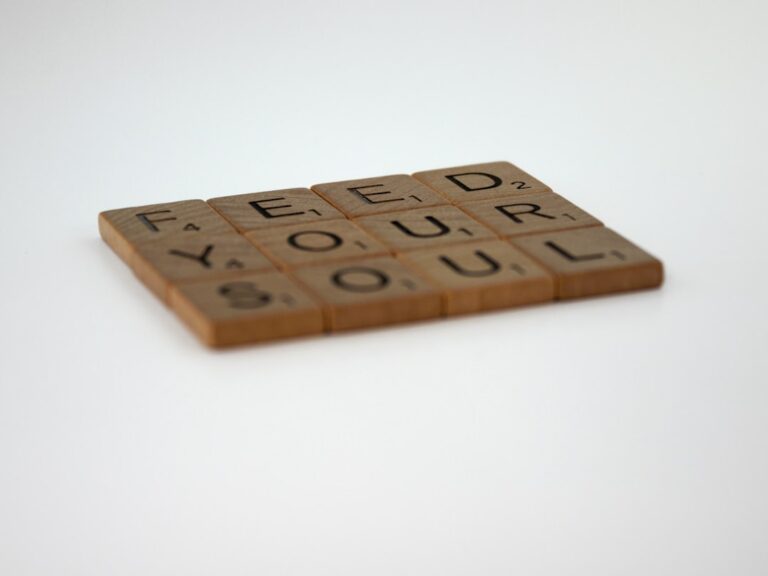Post-Event Follow-Up Emails: Developing Relationships and Creating a Community In the realm of event organizing, the work doesn’t stop when the last attendee departs or the last presentation is over. The follow-up process is one of the most important steps in making sure any event is successful. Follow-up emails after an event act as a conduit between you and your guests, enabling you to thank them, get their opinions, & build enduring bonds. The experience of attendees is improved by these emails, which also offer insightful information that can guide future gatherings. Creating follow-up emails that are effective can have a big impact on the engagement and reputation of your company. Grab a Trivia Subscription for Weekly Fun! https://cheaptrivia.com/products/weekly-trivia-subscription-service
Key Takeaways
- Post-event follow-up emails are crucial for maintaining relationships with attendees and stakeholders after an event.
- Thank you emails should be personalized, express gratitude, and include a call to action for further engagement.
- Feedback request emails should be concise, specific, and provide a clear incentive for participation.
- Invitation to future events emails should highlight the benefits of attending and include a compelling call to action.
- Recap and results emails should provide a comprehensive overview of the event and its impact, and include a call to action for continued support.
You can show that your guests’ opinions are important and that their presence was appreciated by contacting them. This article will examine several post-event follow-up email formats and provide advice and examples to help you establish deep connections with your audience. Timeliness is crucial. Thank you emails are one of the easiest yet most effective ways to express gratitude to your guests.
It is imperative that this email be sent as soon as possible following the event, preferably within 24 to 48 hours. Being Authentically Appreciative. In your note, thank them sincerely for their participation and point out particular elements that contributed to the event’s uniqueness.
This individual touch has the power to make an impression that lasts and inspire future interactions with your organization. A summary of the event’s success.
“Thank you for attending our annual charity gala! Your presence helped us raise over $10,000 for local families in need,” you could say, for example. We hope the evening was as enjoyable for you as it was for us.
A succinct summary of the event’s accomplishments serves to both reaffirm the importance of attendees’ attendance and to strengthen the bonds of community among them. After expressing your gratitude, it’s time to get input. An email asking for feedback is a great way to find out what went well and what could be improved for subsequent events. Encourage participants to comment on the location, speakers, events, and overall experience in this email. A survey tool could be a useful tool to help you expedite this process.
For instance, “Your input is very important to us, and we aim to make every event better than the last,” could be written. Tell us how we did by taking a moment to fill out our brief survey [insert link]! By proactively seeking feedback from your audience, you show that you value their thoughts and are dedicated to ongoing development.
Following feedback collection, it’s critical to maintain the momentum by extending invitations to subsequent events. This email ought to draw attention to forthcoming chances for involvement and engagement within your company. The event’s date, time, location, special guests, and scheduled activities should all be mentioned.
Saying something like, “We are thrilled to announce our next event: a community workshop on sustainable living scheduled for March 15th! Join us for an afternoon of learning and networking with like-minded individuals” is an example. You can keep previous attendees interested in your organization by giving them clear information and a strong incentive to come. The highlights and conclusions of the event are thoroughly summarized in a recap and results email. For stakeholders who might not have been present but are still interested in the event’s success, this kind of email is especially helpful.
Include important data in this message, like participant engagement levels, funds raised, or attendance figures. You may write something along the lines of, “We are excited to announce that our most recent fundraising gala raised $10,000 for local charities and drew over 200 guests! We appreciate your participation in this amazing journey.”. Adding images, like pictures or infographics, can increase interest and make the content easier to understand. In addition to providing information, this email highlights the value of teamwork.
A successful event could lead to future collaborations or sponsorships. Potential partners who might be interested in working together on upcoming events can receive an email offering sponsorship opportunities. Describe the advantages of collaboration and how it can generate value for both parties in this email. For example, you may state, “We are looking for sponsors for our next community festival!
Joining us will give you exposure to a wide range of people while also helping a worthy cause.”. Don’t forget to include information about sponsorship packages and involvement opportunities. Future events can be improved by successful partnerships that result from this proactive approach. Since volunteers are frequently the foundation of a successful event, it is essential to recognize their diligence and commitment. Individual contributions should be acknowledged and sincere gratitude should be conveyed in a volunteer appreciation email. By personalizing this message, volunteers can feel appreciated & valued. “Dear Volunteers, thank you for your amazing support during our recent charity run!
Your enthusiasm & commitment made a significant difference in creating a memorable experience for all participants,” is one possible line to write. An invitation to a volunteer recognition event or a small token of appreciation could be included as a thank-you gift. Social media is essential for event promotion and audience engagement in the current digital era. Attendees are encouraged to share their experiences online through a social media sharing request email. This promotes community involvement in addition to expanding the reach of your event.
We would love it if you could post on social media about your favorite parts of our most recent event. Tag us with the hashtag OurEvent2023 so we can all celebrate together. Using targeted hashtags and urging guests to post images or reviews will generate interest in your company and upcoming events.
Attendee testimonials can be extremely effective means of promoting your company and its activities. It is recommended that an email soliciting testimonials ask participants to describe their experiences in their own words. Emphasize how their comments can aid others in appreciating the importance of going to upcoming events.
You may write something like this: “We would be very grateful if you could take a moment to share your thoughts about our recent workshop! Your testimonial may encourage others to join us in the future.”. Make it easier for them by giving them a straightforward form or URL to submit their comments. Following up with a donation request email is crucial if the goal of your event was to raise money or support a cause.
In addition to clearly outlining how attendees can continue to support your mission, this message should serve as a reminder of the impact their contributions can have. “Thank you for helping to make our recent gala a success! If you would like to continue supporting our cause, please consider making a donation [insert link],” is one possible phrase. Making a difference in our community requires every dollar. Reiterating the value of their contributions promotes continued participation and support. To sum up, sending follow-up emails after an event is crucial to efficient event management.
In addition to showing appreciation, they cultivate enduring bonds with participants, volunteers, sponsors, and partners. You can establish a comprehensive communication strategy that improves engagement and fosters community by utilizing a variety of follow-up email formats, such as thank-you notes, feedback requests, invitations to future events, results summaries, sponsorship opportunities, volunteer appreciation messages, requests for social media sharing, testimonials, and donation appeals. Keep in mind that the aftermath of your event is just as crucial as the event itself when you organize your next one. Spend some time writing considerate emails that appeal to your readers and motivate them to keep in touch with your company. In addition to fortifying relationships, you’ll clear the path for future achievements by doing this.
So go ahead and begin writing those follow-up emails right now!
After hosting a successful Friends Quiz Night, it’s important to follow up with your friends to thank them for participating and to gather feedback for future events. In addition to sending out post-event emails, you may also want to consider incorporating Christmas-themed trivia games into your next gathering. Check out this article on 10 Ways to Use the Christmas Star in Trivia Games for some festive inspiration. You can also test your friends’ knowledge of religious Christmas carols with this fun quiz or learn how to choose prizes for Christmas trivia nights with this helpful guide on prize selection. Happy hosting!
Check Out All Our Themed TV Trivia Packs!
FAQs
What is a post-event follow-up email?
A post-event follow-up email is a message sent to attendees after an event to thank them for their participation, gather feedback, and provide any additional information or resources related to the event.
Why is it important to send post-event follow-up emails?
Post-event follow-up emails are important for maintaining relationships with attendees, gathering feedback for future improvements, and providing any necessary information or resources related to the event. They also show appreciation for attendees’ participation.
What should be included in a post-event follow-up email?
A post-event follow-up email should include a thank you message, a recap of the event, any relevant resources or information, a request for feedback, and a call to action for future events or activities.
How can post-event follow-up emails benefit the host of a quiz night?
Post-event follow-up emails can benefit the host of a quiz night by showing appreciation to attendees, gathering feedback for improving future quiz nights, and promoting upcoming events or activities.
What are some examples of post-event follow-up emails for quiz night hosts?
Some examples of post-event follow-up emails for quiz night hosts include thank you messages, event recaps, links to quiz night resources, requests for feedback, and invitations to future quiz nights or events.






